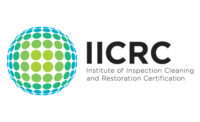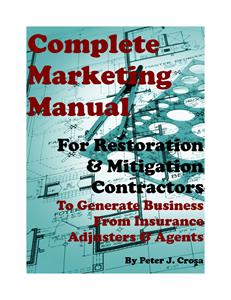10 Strategies for Coping with Short Staffing

The restoration industry stays busy year-round, but cold weather always ramps up our challenges. Most of the calls here at ServiceMaster Restoration by Zaba are from homeowners dealing with frozen burst pipes. I'm not usually short-staffed at work, but emergency water damage jobs during the winter can really stretch our capabilities. These projects are a profitable part the restoration business, so none of us can afford to lose the work because we're understaffed.
1. Know What's Coming
I head off the effects of being short-staffed by staying ahead of bad weather. When the forecast includes freezing temperatures, I put my entire staff and crew on alert. Even those with days off understand they're on call.
2. Know Who's Available
We stay in close touch with all our team members, and I reach out to our part-time employees too. I ask them to be on stand-by and ready to come in as soon as we call.
3. Have a Backup Plan
I don't use them often, but I do have a good working relationship with an area temp agency. When we're short-staffed and overworked, I reach out to the agency and let them know how many people I need for different jobs.
4. Cover the Office Too
During our busy season, understaffing issues affect our administrative teams too. I put admin staff on 24/7 call-in alert, and we even set up cots in our offices so that tired employees can take quick nap breaks.
5. Streamline Important Paperwork
Staff gets ahead of processing forms we need in the office and out in the field. The idea is to have everything organized so that filling out electronic and paper files goes more quickly.
6. Keep Contact Information Handy
We post lists of important phone numbers and after-hours contact information at every desk in the office. I also send out the same information with my field crews. This simplifies making critical phone calls in a hurry.
7. Double Up on Supplies
The last thing a restoration company needs to do is run out of supplies during a seasonal rush. By doubling up on cleaning products and personal gear, we avoid losing valuable time hunting down must-have items for our field crews.
8. Double-Check Equipment
When we're running short-staffed, there's no room in the work schedule for dealing with faulty equipment or missing tools. My crews use time between jobs to make sure everything is organized and running in top condition.
9. Stay Ready to Roll
When the calls start pouring in, we're ready to roll and take on multiple jobs. My teams save return trips to headquarters by stocking each service van with enough equipment and products to handle at least five projects.
10. Stay Positive and Supportive
Knowing how to encourage employees when you're short-staffed makes big projects easier to handle. Your support means a lot. Tell your in-house staff and field crews how much you appreciate their work. Thank them for putting in the overtime, and show you really mean it with generous bonuses.
It's Always a Team Effort
I have one final piece of advice about how to handle being understaffed. Pull together as a team. It helps hold down job stress and keep up morale. This strategy always gives me and my crews the strength to take on extra work regardless of our head count at the office and in the field.
Looking for a reprint of this article?
From high-res PDFs to custom plaques, order your copy today!







